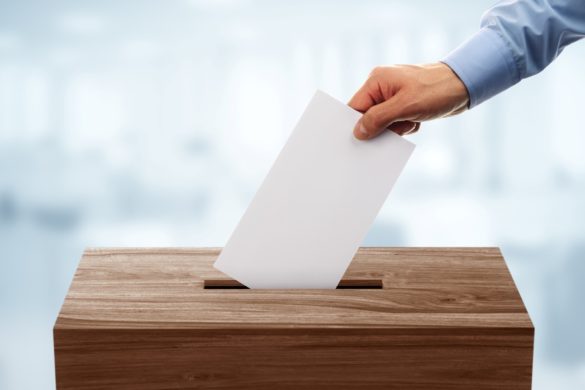The democratic body of the European Academy of Neurology (EAN) is the assembly of delegates, which acts as the parliament of the EAN. This assembly meets once a year, usually on Saturday, during the annual meeting. The 4 major roles of the assembly of delegates are (i) to control the actions of the board, i.e. the government of the EAN, (II) to approve changes in bylaws, and (iii) to elect the President elect, the Secretary General, the Treasurer, and the Chairs of the scientific and of the communication committees, the other board members being either co-opted (Chairs of the program and education committees) or already elected 2 or 4 years before (President and Past President) (iv) determine the congress cities for the EAN congress
There are two parts in the assembly of delegates:
– Delegates representing the 47 national societies. They are the heritage of the former EFNS. They are appointed by the Presidents of national societies of neurology. All countries have the same weight (1 delegate) irrespective of their population or number of neurologists. If the delegate of a country cannot attend the general assembly, the President of the national society must inform the head office in due time and nominate a substitute from the same country.
– Delegates representing the full members. They are the heritage of the former ENS. They are elected for 4 years by the full members who have paid their annual fee before February 28th. Their number depends on the number of full members we have and cannot exceed 47. Currently there are 30 delegates plus a complementary list of substitutes of 10 persons (the 10 who received most votes after the 30 who were elected). In case a delegate cannot attend the assembly of delegates, there is no proxy, but he or she is replaced for the duration of the meeting by the following one on the list of substitutes who may not be from the same country or from the same subspecialty.
Delegates representing the full members were elected for the first time in 2014 and met in Istanbul, Berlin, Copenhagen and Amsterdam. Their term is over now, and 30 new delegates have been elected in March, with a list of 10 substitutes. Three countries account for half the delegates (Germany 8, Italy 6 and France 4), and the 3 leading subspecialties are Movement disorders, Stroke and Multiple sclerosis. These 30 (+10) new delegates represent a variety of countries, subspecialties, and age-categories. Gender balance is not perfect, but the proportion of women has increased and reaches now one third. Moreover, there were 3 women within the 4 delegates who received the highest number of votes.
The new assembly of delegates will now meet in Lisbon in June and will have to elect 5 new board members, including the president elect who will become President in 2020. The President will become Past President and Franz Fazekas will become the new President of the society. Another key role of the new assembly will be to allow the board to make some changes in the bylaws. There are several issues that could not have been anticipated. For instance, we will suggest that when a new board is elected the elected board takes office at the end of the meeting and not during the meeting of the assembly, and other technical changes are needed.
We hope many of you will attend the Lisbon meeting in June. The program appears to be fascinating and besides the scientific interest, it will be an excellent opportunity to meet colleagues from other countries.
Didier Leys Günther Deuschl
Secretary General President














1 comment
The elections were not supposed to be a secret and the results should be published: the names of elected representtives should be annouced, certainly to the membership! Also I call for better balance of representatives- as I predicted it is now skewed- 18/30 ( 60%) are of 3 countries. I call for a motion to limit the number of representatives from one nation to 5 and add it to the bylaws.
Prof Zohar Argov